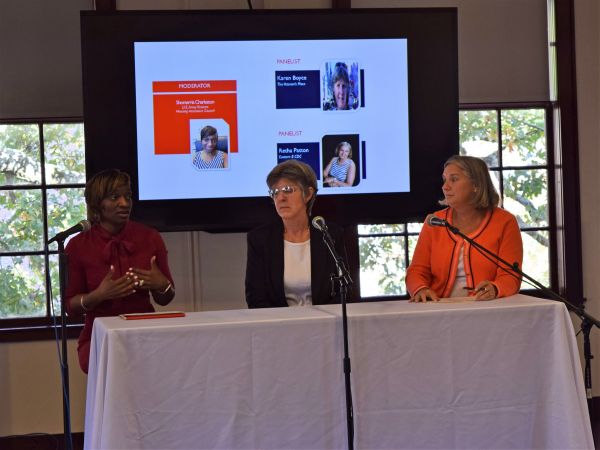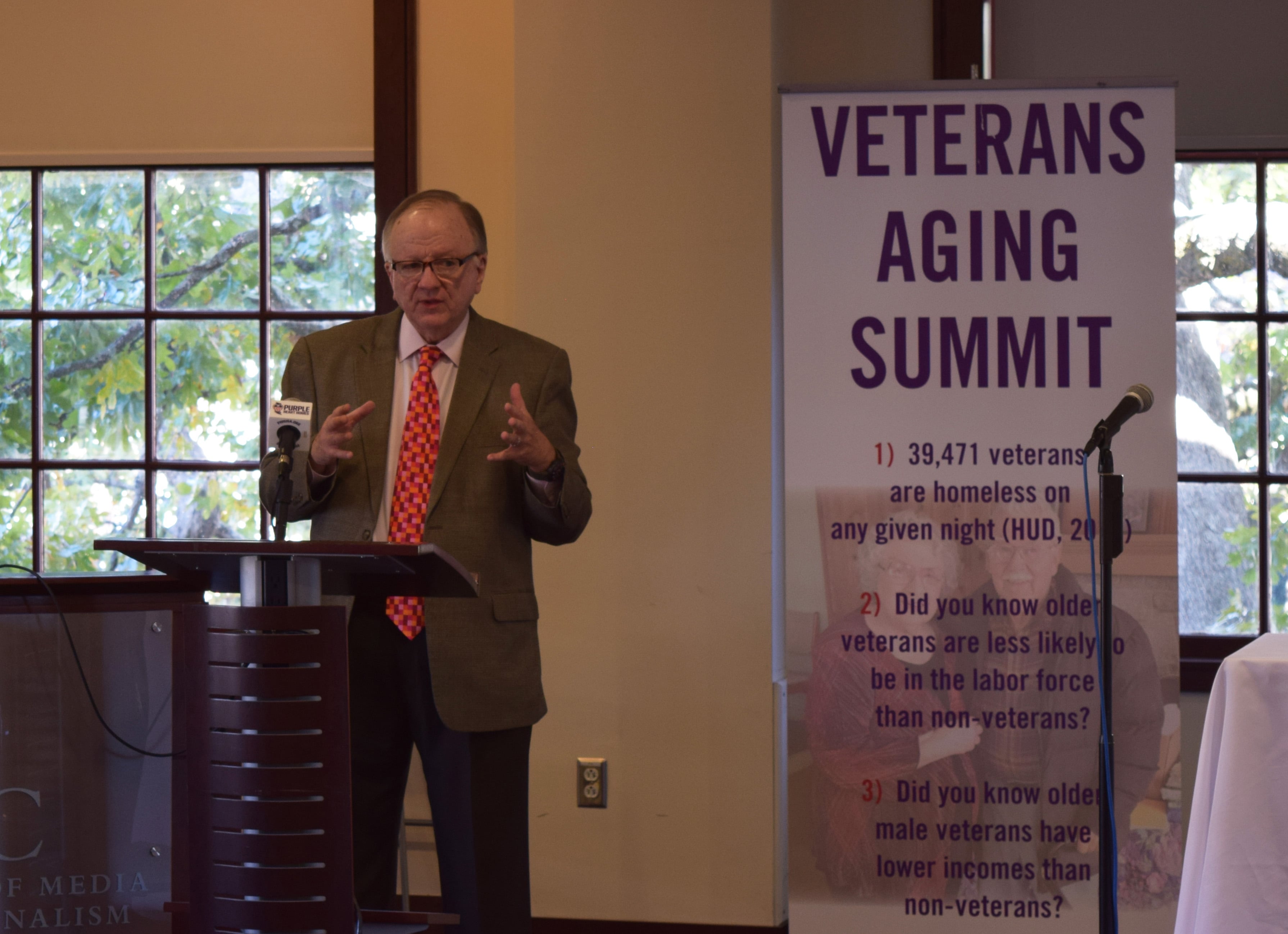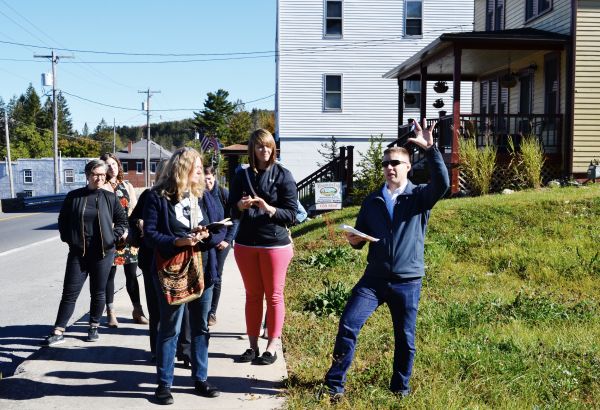HAC Joins Summit on Addressing the Needs of Aging Veterans
On Friday, October 20, 2017, the Housing Assistance Council joined The Home Depot Foundation and the National League of Cities to support Purple Heart Homes in their 1st Annual Veterans Aging Summit. Held at the University of North Carolina, the summit convened nonprofit practitioners, Veterans’ service organizations, researchers, educators, public policy makers, community leaders, government representatives, and other interested stakeholders to collaborate on identifying and meeting the needs of aging Veterans and their caregivers.
 HAC’s Shonterria Charleston, Karen Boyce (The Veteran’s Place) and Retha Patton (Eastern Eight CDC) discuss housing rural veterans.
HAC’s Shonterria Charleston, Karen Boyce (The Veteran’s Place) and Retha Patton (Eastern Eight CDC) discuss housing rural veterans.
HAC coordinated the Aging Veterans and Housing Panel, which featured two of its Home Depot Foundation-funded grantee organizations, The Veteran’s Place (Karen Boyce) and Eastern Eight Community Development Corporation (Retha Patton). Moderated by HAC’s Shonterria Charleston, the panel focused on housing (single and multifamily) and service provisions to aging veterans and provided context to rural challenges, best practices and opportunities for successful projects.
Funding support provided by The Home Depot Foundation
 HAC’s Joe Belden speaking at the Aging Veterans Summit.
HAC’s Joe Belden speaking at the Aging Veterans Summit.



